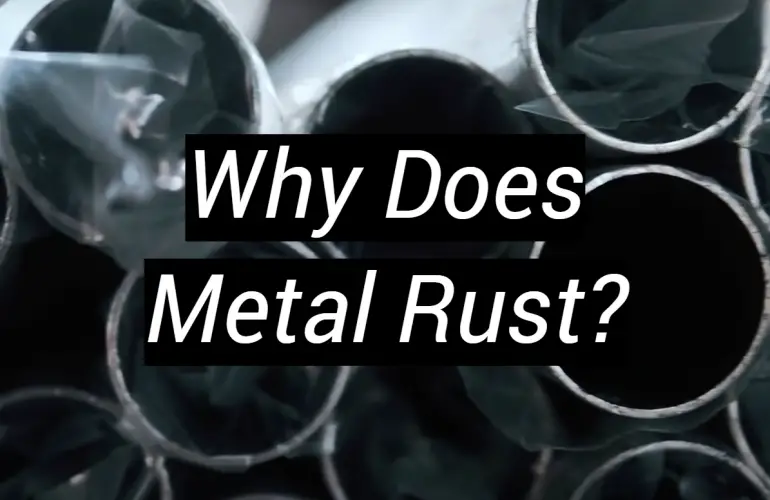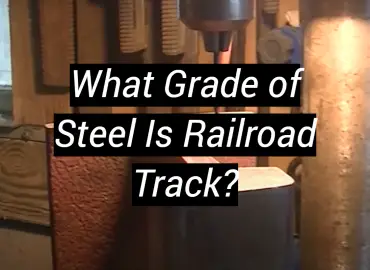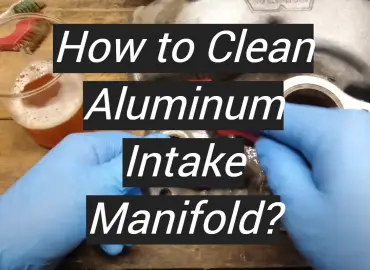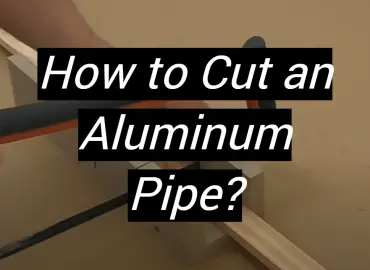The process of metal turning from shiny to dull is called rusting. Rust affects bridges, buildings, and landmarks. Why does metal rust? It may be because water interacts with air. But there are many other chemical reactions that occur too.
Metal corrosion is when metal breaks down and turns into a powder. We don’t need to do a complex study to understand why this happens. In this blog post, we will explore the reasons behind metal corrosion so we can better prevent it!
What Is Corrosion?
Corrosion is when metal breaks down over time because of chemical reactions. This happens when metal comes into contact with water, oxygen, and other chemicals. Corrosion can cause big problems for structures made out of metal, like bridges and buildings.
How Corrosion Occurs
The most common type of corrosion is called oxidation. Oxidation happens when oxygen in the air reacts with metal, which causes rust. Oxygen and water both cause oxidation. You can see this reaction happening right before your eyes if you watch iron turn into rust over time.

But there are other types of corrosion, too! For example, chloride corrosion happens when metal reacts with chloride ions. This type of corrosion is very common in saltwater environments and can cause big problems for boats and ships.[1]
Removing and Treating Rust
Once rust has formed, it can be difficult to remove. You can use special chemicals to clean rust off of metal, but this is often time-consuming and costly.
Corrosion is when metal rusts. You can prevent corrosion by treating the metal before it gets wet or is in a place with corrosive elements. You can treat the metal by coating it or using sealants.
This will prevent rusting. Cathodic protection is another way to stop corrosion. This uses electric currents to slow down corrosion.
How Can I Prevent Corrosion?
There are several things you can do to prevent your metal from corroding.
- Make sure to keep the metal dry and away from moisture.
- Use coatings or sealants to create a barrier between the metal and the elements that cause oxidation.
- If you are in a saltwater environment, use cathodic protection to slow down chloride corrosion.
- Lastly, check regularly for rust and repair any damage as soon as possible.
Why Metal Rusts?
Metal rusts because of chemical reactions with water, oxygen, or other chemicals. Rust is the most common type of corrosion, but there are other types as well. Rust can weaken metals and cause them to break down over time.
It’s important to take measures to prevent rusting and treat any existing rust before it gets worse.
Super Fast Rust Prevention
Here are some simple steps you can take to prevent rust from forming on metal:
- Keep the metal dry and away from moisture
- Apply coatings or sealants to create a barrier between the metal and elements that cause oxidation
- Use cathodic protection in saltwater environments
- Check for rust regularly and repair any damage quickly
- Store metal away from corrosive chemicals, like acids or bases.
How to Protect Metal From Rust?
Paint
Paint can help protect metal from rust. It does this by forming a barrier between the metal and oxygen in the air.
Galvanizing
Another way to protect metal from corrosion is to galvanize it.
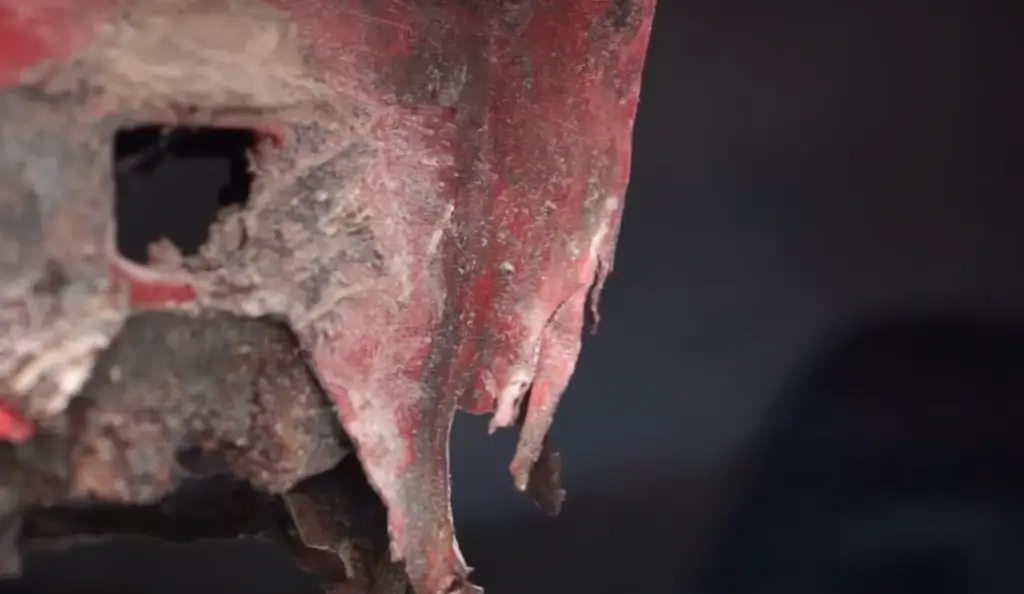
Galvanizing is a process in which metal is coated with zinc. This creates a barrier between the metal and oxygen, preventing rust from forming.
Sealants
Sealants are used to create a protective layer on metal objects. Sealants work by blocking moisture and oxygen from reaching the surface of the metal, which stops rust from forming.
Plating
Plating is a process in which metal is covered with another type of metal. This can help protect the metal from corrosion, as the plated metal acts as a barrier against oxygen and water. [2]
Other Protective Barriers
Other things that can stop metal from rusting are oil, wax, grease, and grease-based paints. These things make a barrier between the metal and oxygen. This stops rust from forming on the metal.
Alloys and Stainless Steels
Some metals are naturally resistant to rust. Some alloys, like aluminium and bronze, can resist corrosion better than other metals. Stainless steels are a type of alloy that is especially good at resisting rust.
Metal objects can rust, but there are ways to stop it. Keep the metal dry and not near water. You can also use coatings or sealants to create a layer of protection from the elements. Galvanizing, plating, and using alloys are other ways you can protect metal from rusting.
Rust Removal
If your metal does rust, there are ways to remove the oxidation. Sanding and scrubbing can help remove any rust that has formed on the surface of the metal.
You can also use chemical cleaners or electrolysis to help break down the rust. Be sure to wear protective gear when using chemicals or power tools.
Warnings
Rust can make metal weak. To stop rust, we must take measures to prevent it from forming and also to treat any existing rust before it gets worse.
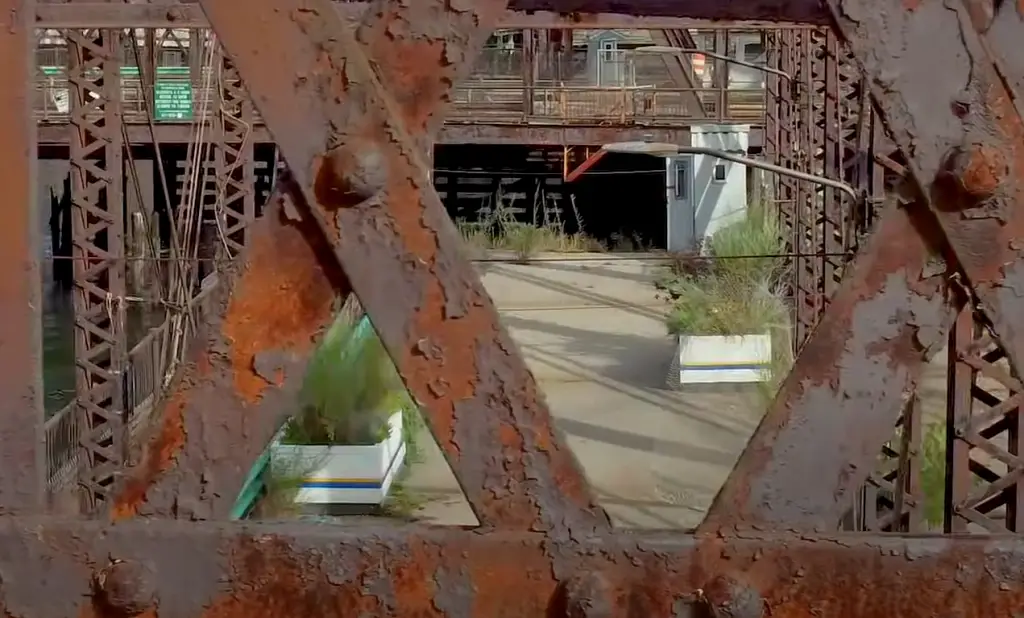
If there is already rust on the metal, we must use the right methods to remove it.
Taking care of your metal objects is the best way to prevent rust. Regularly check for signs of corrosion and take measures to prevent it from forming.
With the right steps, you can keep your metal safe from rust and preserve its strength for years to come.
FAQ
What causes rust on metal?
Rust is caused by a chemical reaction between metal and oxygen. This reaction, called oxidation, happens when the metal is exposed to water or other elements that contain oxygen, like air.
How do you prevent rust from forming on metal?
Rust is a type of damage that can happen to metal. To stop rust from happening, keep the metal dry and away from moisture. You can also put a coating or sealant on the metal.
This will create a barrier between the metal and elements that cause oxidation. In saltwater environments, you can use cathodic protection to prevent rust.
How do you remove rust from metal?
To remove rust from metal, use sanding, scrubbing, chemical cleaners, or electrolysis. Be sure to wear protective gear like gloves or a mask when using chemicals or power tools.
Can all metals rust?
No, not all metals can rust. Some metals, like aluminium and stainless steel, are naturally resistant to oxidation. Other types of metal can be treated with protective finishes or coatings that stop rust from forming.
What 3 things cause rust?
Rust is caused by water, oxygen, and metal. Oxidation happens when these elements mix together.
How do you prevent metal from rusting?
To prevent metal from rusting, keep it dry and away from moisture. You can also use coatings or sealants to create a protective barrier between the metal and elements that cause oxidation.
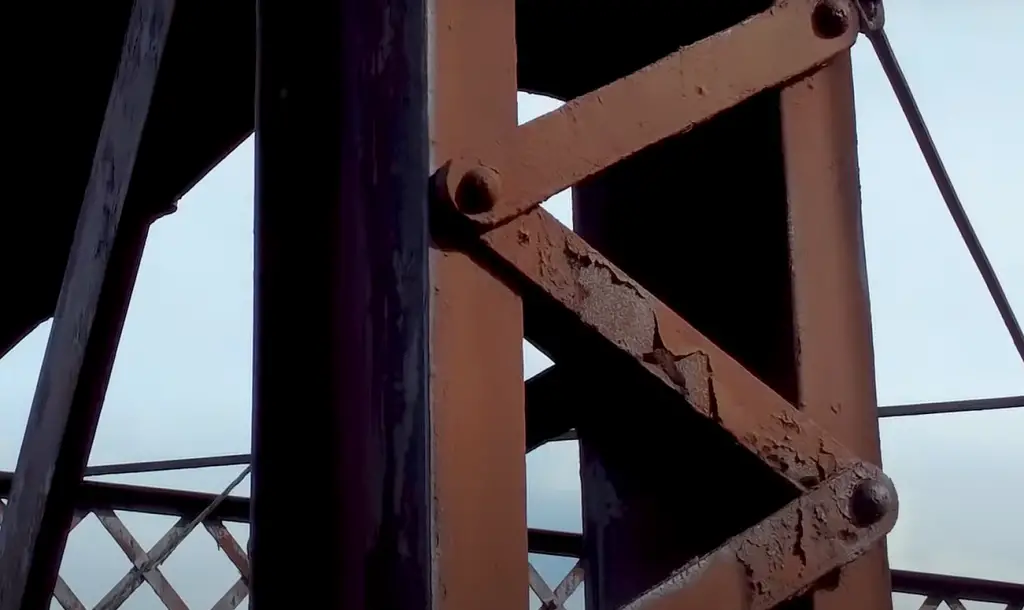
In saltwater environments, you can use cathodic protection to stop corrosion. Galvanizing and plating are other methods of protecting metal from rust.
Why is rust toxic to humans?
Rust is not poisonous to humans. Rust is made of metal that has oxidised, which means it has been exposed to air and changed. This can be harmless if ingested in small amounts.
However, some chemicals used to treat rust can be poisonous and should only be handled with care.
Additionally, breathing in rust dust can be dangerous if you have certain medical conditions like asthma or allergies. It’s important to wear a face mask when sanding or scrubbing rusted metal.
Can you reverse metal rusting?
Yes, it is possible to reverse metal rusting. Sanding and scrubbing can help remove any rust that has formed on the surface of the metal.
You can also use chemical cleaners or electrolysis to help break down the rust. Be sure to wear protective gear when using chemicals or power tools.
What removes rusting?
You can sand it off, scrub it off, use chemical cleaners, or electrolysis. When using chemicals or power tools, be sure to wear gloves or a mask to protect yourself. You can prevent rust from forming in the first place by keeping the metal dry and away from moisture.
Another way to prevent rust is to put a coating or sealant on the metal so that elements that cause oxidation cannot get through. In saltwater environments, you can use cathodic protection to stop corrosion. Galvanizing and plating are other methods of protecting metal from rust.
How long does it take for metal to rust?
The time it takes for rust to form on metal depends on the type of metal, the environment, and other factors. In general, rust can form within a few hours or days if the metal is exposed to air and moisture.
To prevent this from happening, you should keep the metal dry and away from elements that cause oxidation. You can also put a coating or sealant on the metal.
In saltwater environments, you can use cathodic protection to prevent rust from forming. Galvanizing and plating are other methods of protecting metal from rust.
How do you stop rust from spreading?
The best way to stop rust from spreading is to keep the metal dry and away from moisture. You can also coat or seal the metal to create a barrier between it and elements that cause oxidation.
In saltwater environments, you can use cathodic protection to prevent corrosion. Galvanizing and plating are other methods of protecting metal from rust.
You should also take steps to remove any rust that has already formed. Sanding and scrubbing can help with this, but be sure to wear gloves or a mask when using chemicals or power tools.
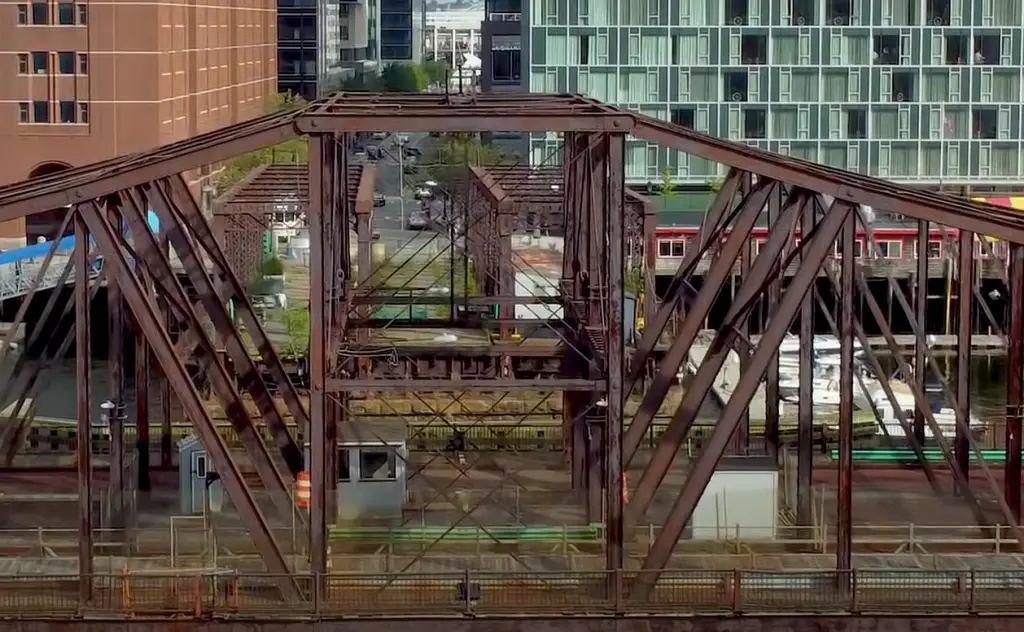
Finally, cleaning off any dirt or debris that has built up on the metal surface can also help stop rust from spreading.
Why do some metals rust more than others?
Some metals are more prone to rusting than others because of their chemical makeup. Iron and steel, for example, are both very reactive and can easily be oxidised by air and moisture. Aluminium is much less reactive, so it is much less likely to form rust.
Does rust spread on metal?
Yes, rust can spread on metal if it is exposed to air and moisture. It is important to keep the metal dry and away from elements that cause oxidation.
You can also coat or seal the metal to create a barrier between it and these elements. In saltwater environments, you can use cathodic protection to prevent corrosion.
Do all metals rust?
No, not all metals rust. Certain metals like aluminium, stainless steel, and other alloys are much less likely to form rust because of their chemical makeup. However, iron and steel are more reactive and can easily be oxidised by air and moisture.
Does painting metal stop rust?
Painting metal can help stop rust from forming. The paint will act as a barrier and prevent the metal from coming into contact with elements that cause oxidation.
However, if the paint is damaged, then the metal may be exposed again and start to rust. It is important to keep the metal dry and away from elements that cause oxidation, even when it is painted.
Can you stop metal from rusting?
You can stop metal from rusting by keeping it away from things that make it rust. You can also put a coating or seal on metal to protect it. In saltwater, you can use cathodic protection to stop corrosion.
Is rust permanent?
Rust is not permanent. If you remove any rust that is there and keep the metal dry, it will not rust. You can also put a coating on metal to protect it from rust.
In saltwater environments, you can use cathodic protection to prevent corrosion. Galvanizing and plating are other methods of protecting metal from rust.
Which metal does not rust?
Aluminium, stainless steel, and other alloys are less likely to form rust because of the way they are made. These metals are also more resistant to oxidation. However, iron and steel are more reactive and can be easily oxidised by air and moisture.
When does metal rust?
Rust is when metal gets corroded. It happens when the metal is exposed to air and moisture and oxygen starts to eat away at it.
Rust will spread if you don’t do anything about it, so it’s important to keep the metal dry and away from things that will make it rust. You can also coat the metal or seal it so oxygen can’t get to it.
Can rust be prevented?
Yes, you can prevent rust. The best way to do this is to keep the metal dry and away from things that make it rust. You can also coat or seal the metal so oxygen can’t get to it.
In saltwater environments, you can use cathodic protection to stop corrosion. Galvanizing and plating are other methods of protecting metal from rust.
You should also take steps to remove any rust that has already formed. Sanding and scrubbing can help with this, but be sure to wear gloves or a mask when using chemicals or power tools.
Finally, cleaning off any dirt or debris that has built up on the metal surface can also help stop rust from forming.
Is rust a chemical reaction?
Rust is a type of chemical reaction that happens when iron or steel comes into contact with air and moisture. Oxygen starts to eat away at the metal, causing it to form iron oxide, which is also known as “rust.”
Rust can be prevented by keeping the metal dry and away from elements that cause oxidation, or by coating or sealing it with a protective layer.
How do you clean rust off metal?
The best way to clean rust off metal is to sand it down or use a chemical solution. If the rust is light, you can use a scrub brush and some soap and water. For tougher stains, you may need to use a chemical such as vinegar or citric acid.
You should also wear gloves or a mask when using chemicals or power tools. Finally, you can use a rust converter to seal the metal surface and prevent further rusting.
Useful Video: Why Does Metal Rust? (And Why Should We Care?) | Out of Our Elements
Conclusion
Though metal rusts at different rates depending on the conditions, the cause is always the same: oxidation. When oxygen molecules come into contact with iron atoms, they steal electrons from them, causing the iron to break down and form new compounds.
This process is called corrosion, and it’s responsible for the degradation of countless man-made structures over time.
Even though corrosion is a problem, there are ways to stop it from happening. By understanding how and why metals rust, we can take steps to prevent it from happening so that our buildings and bridges will last for a long time.
References:
- https://www.cslsilicones.com/en/about/blog/item/what-causes-corrosion.html
- https://makeitfrommetal.com/why-does-metal-rust/

